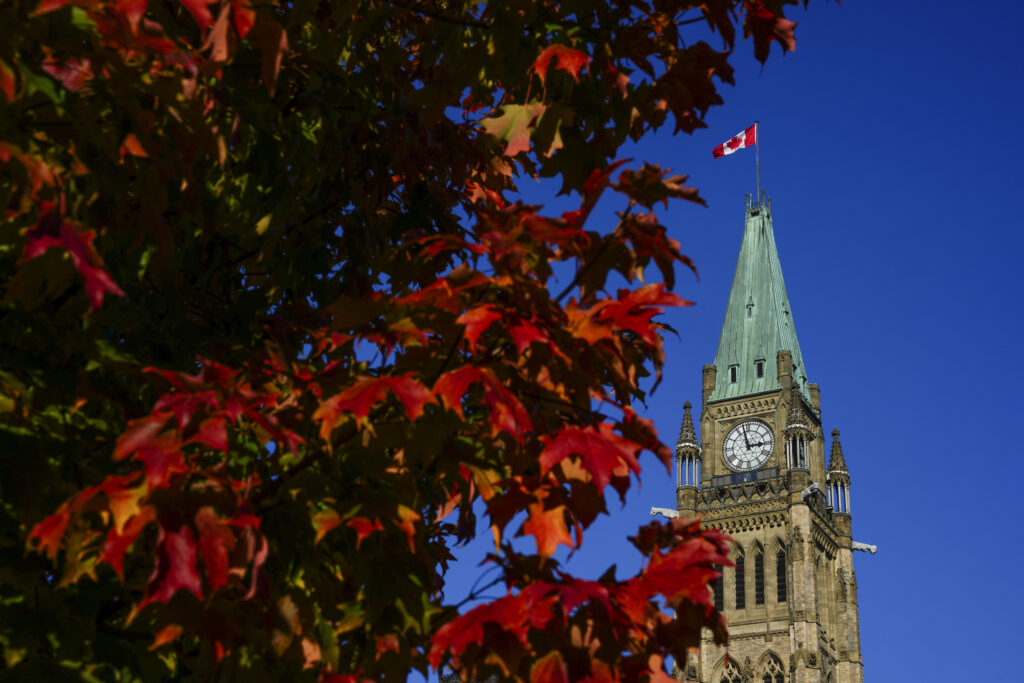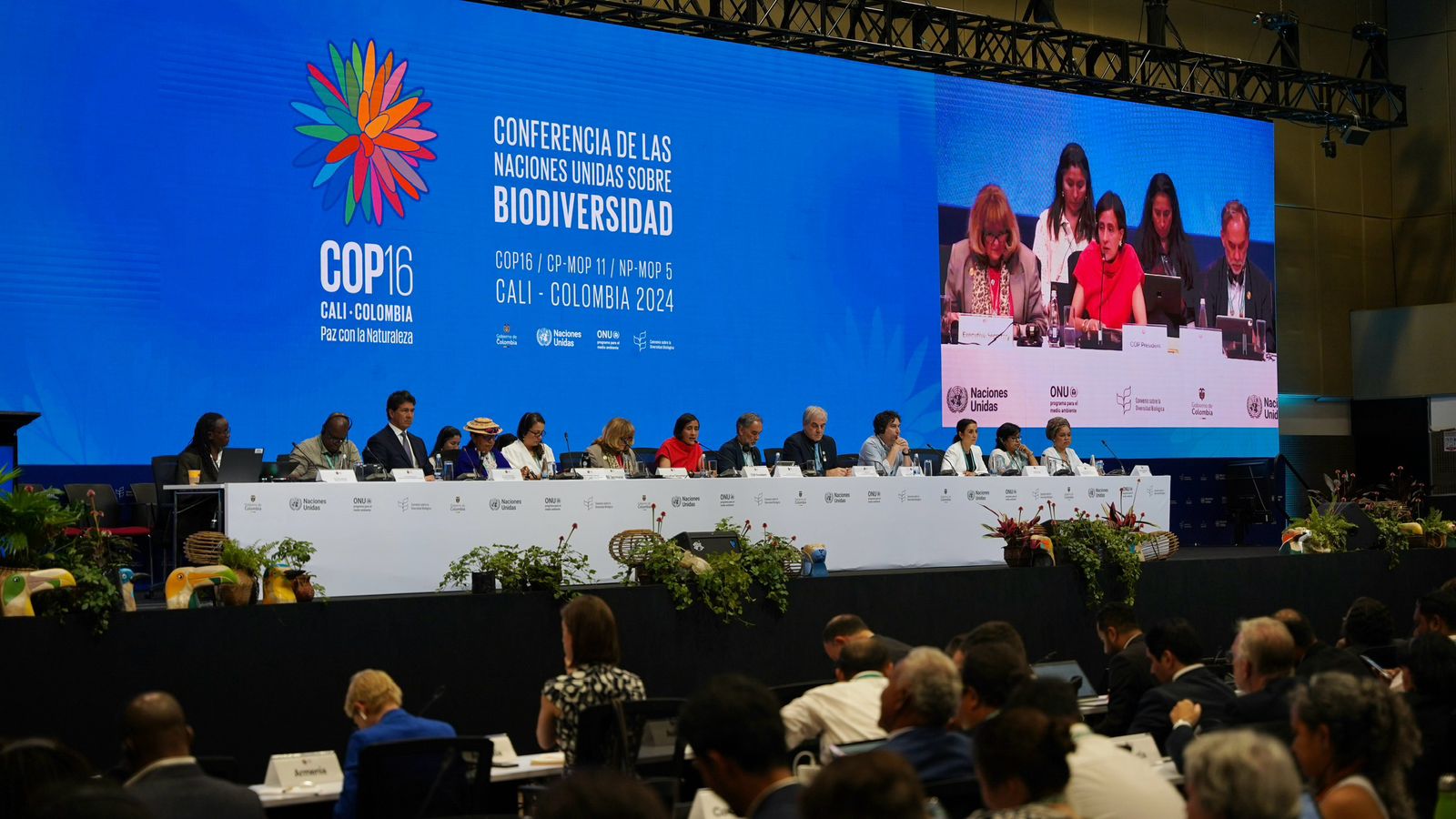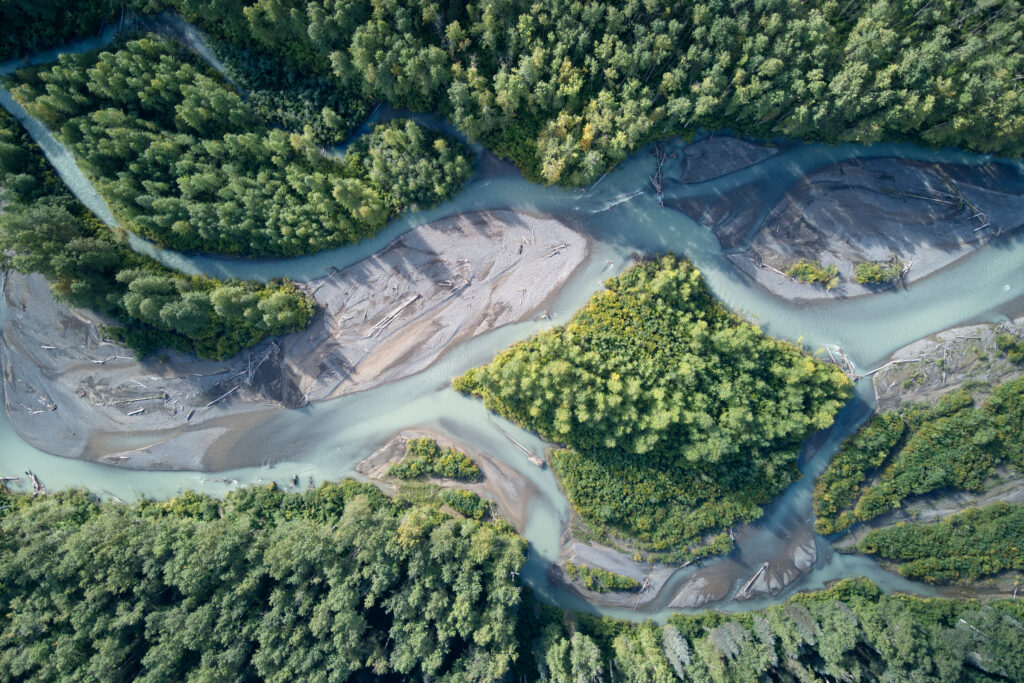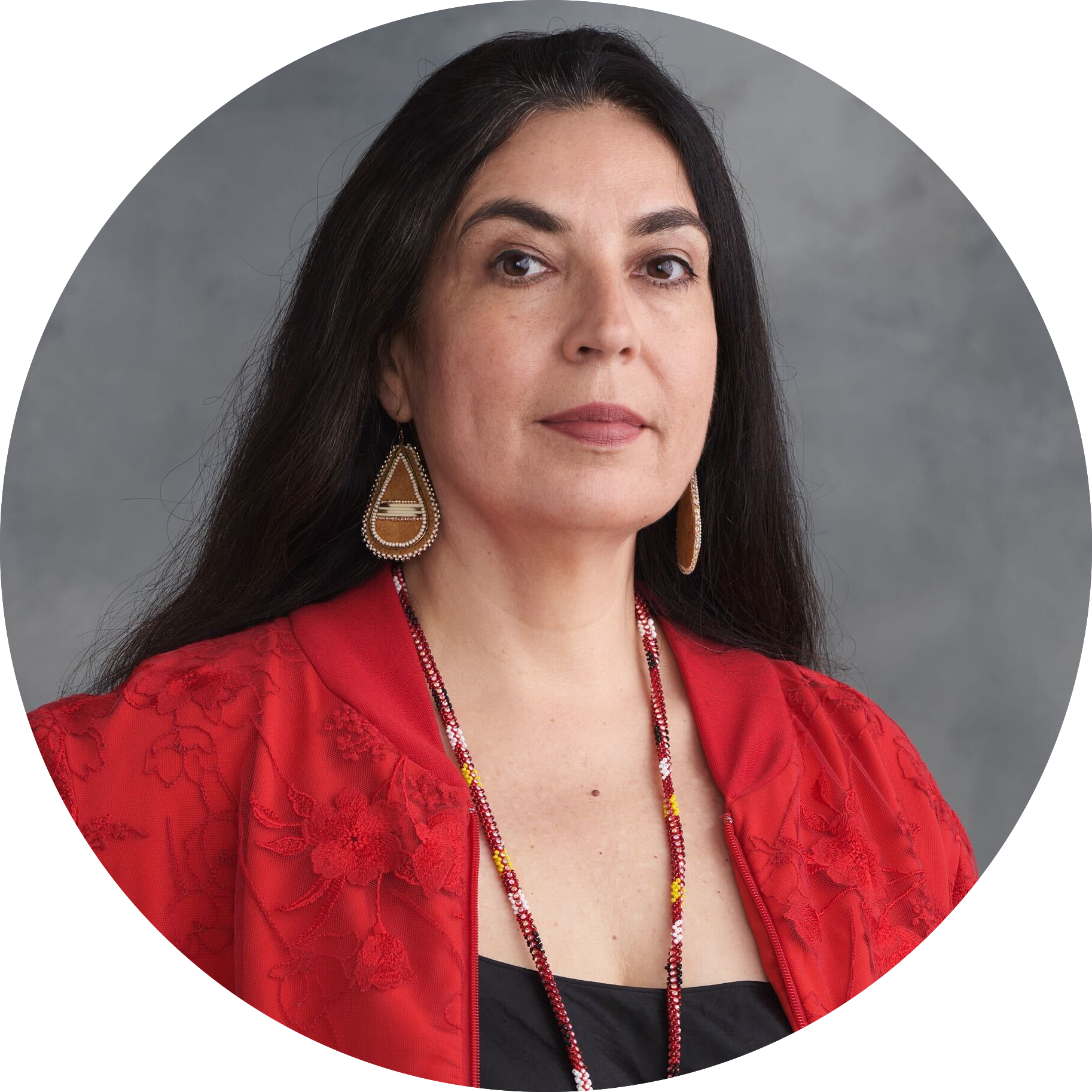
Alberta oil and gas companies could avoid cleanup costs by installing solar panels: government report
An Alberta government-commissioned report suggests oil and gas site companies may be able to install...
Get the inside scoop on The Narwhal’s environment and climate reporting by signing up for our free newsletter.
Federal Environment Minister Steven Guilbeault is blaming opposition parties for his last-minute absence from international negotiations in Colombia aimed at reversing the unprecedented decline of nature worldwide.
In a statement, Guilbeault said opposition parties were invited to attend COP16, the United Nations biennial biodiversity conference, as part of a parliamentary delegation, “but they all unfortunately declined, effectively saying they don’t care about international efforts to protect nature and fight against climate change.”
Guilbeault, who was scheduled to arrive in Colombia last weekend for the talks, said the parties’ decision effectively blocked his participation as well. “Their decision means Canada will not have ANY representation from our Parliament,” he said in the written statement to The Narwhal, using capital letters for emphasis.
Guilbeault would not typically travel while the House of Commons is sitting since the federal Liberals need him to be present in the minority Parliament in case of a non-confidence vote, which could trigger an election. In cases of travel for conferences or international meetings, the government usually pairs up with opposition MPs and invites them on trips to ensure no one gets a numerical advantage in the Commons.
While members of Parliament can vote virtually, they must be in Canada to do so.

“Canada remains committed to supporting the successful conclusion of COP16 through Canada’s delegation of senior civil servants and [I] will work as best as I can to ensure Canada’s voice is reflected in the final outcome despite the regrettable attitude of Canada’s opposition parties,” Guilbeault stated.
The Liberals previously had an agreement with the federal New Democratic Party that it would support the government in confidence votes, but the New Democrats pulled out of that agreement in September.
Federal Conservative Leader Pierre Poilievre attempted to bring down the government with non-confidence motions, last spring and again last month, but in both cases, the NDP and Bloc Québécois propped up the government.
The federal Conservatives did not respond to questions from The Narwhal seeking reaction to Guilbeault’s comments.
Meanwhile, an NDP MP told The Narwhal the minister could have participated in the conference, regardless of whether opposition MPs decided to attend.
“It’s pretty galling,” NDP environment critic Laurel Collins said in an interview.
“Government ministers attend meetings internationally all the time without opposition MPs alongside them,” she said. “This is clearly an excuse.”
Collins, who said she’s not travelling internationally at the moment because she has two very young children and is breastfeeding, noted the NDP has only 25 MPs — compared to the Liberals’ 153 — suggesting it’s more challenging for the NDP to send a representative to international events.
She said it’s “blatantly untrue” that Guilbeault couldn’t attend COP16 because opposition parties weren’t going. “The minister is responsible for passing legislation and representing Canada on the world stage,” she said.
Almost two years ago, Canada hosted the last international nature conference in Montreal, which saw 196 countries reach a landmark deal to stop the destruction of nature and restore biodiversity. The conference, known as COP15, was the fifteenth gathering of signatories to the Convention on Biological Diversity, an international treaty.
Nature is foundational to human life on earth, providing us with the air we breathe, food we eat and water we drink. But scientists warn it’s declining at unprecedented speed under the combined weight of habitat destruction, overhunting and fishing, invasive species and climate change.
Guilbeault noted this year’s conference “comes at a critical moment to address the biodiversity crisis.”
But as COP16 got underway in Cali, Colombia, the minority Liberal government faced political turmoil in Ottawa.
The House of Commons has been stuck in a stalemate. Prime Minister Justin Trudeau is under pressure from some of his own MPs to step down as party leader. And, most recently, the Bloc Québécois threatened to help topple the government after the Liberals failed to meet the party’s conditions for support.
Akaash Maharaj, policy director for the conservation organization Nature Canada, said it’s not surprising Guilbeault won’t be at the biodiversity conference given the political instability in Ottawa.
But it is “unfortunate,” he said in an interview from Colombia, where he is attending the conference. “His absence is certainly felt.”
Maharaj, who has been in the negotiating rooms as a member of Canada’s state delegation, said Canada may have been able to exert more sway in policy disputes between different countries had Guilbeault and other political leaders been present. He pointed to efforts to ensure Indigenous representation in decision-making, which Canada supports, but some countries have resisted, as one example.

Ultimately, COP16 is about turning the Montreal targets into action, James Snider, World Wildlife Fund Canada’s vice-president of science, knowledge and innovation, said in an interview from Colombia.
That work is “well underway” in Canada, one of only a few dozen countries to have finalized its national biodiversity strategy by the COP16 deadline, he said.
Snider said he doesn’t think Guilbeault’s absence has affected Canada’s ability to show leadership at COP16. He and others noted there’s strong representation from Indigenous nations, non-governmental organizations, businesses and public servants at the conference in Cali.
Over the past few years Canada has made a series of notable conservation announcements: pledging $800 million to support four Indigenous-led conservation initiatives at COP15 in Montreal, supporting Indigenous Guardians programs, finalizing nature agreements with the Yukon, Nova Scotia and B.C. and working with Indigenous nations to establish Indigenous Protected and Conserved Areas.
In June, Guilbeault introduced the Nature Accountability Act, which would require the federal government to develop national strategies for meeting Canada’s global conservation commitments and to issue progress reports on timelines set by the international biodiversity treaty.
But the bill hasn’t progressed beyond first reading.
“Minister Guilbeault stood on a global stage in 2022 and made a promise to the public to create a new law to hold the government accountable to global biodiversity goals,” Charlotte Dawe, government relations and campaign specialist with the environmental law charity Ecojustice, said in a statement to The Narwhal from Colombia.
“His absence at COP16 means he wasn’t there to bear witness to the urgency felt and the importance of implementing the global biodiversity framework. However, it doesn’t mean he’s missed the opportunity to keep his promise and enact a strong Nature Accountability Act,” Dawe said.
On Tuesday, a coalition of ten environmental groups, including Ecojustice, Nature Canada and WWF-Canada, sent an open letter to House leaders for the Liberals, Conservatives, NDP and Bloc Québécois, urging them to bring the Nature Accountability bill forward for second reading as soon as possible.
The organizations are also calling for the House of Commons environment committee to begin studying the bill even before it officially reaches that stage in the legislative process.
“We are convinced that accountability legislation will be key to ensuring successful implementation of Canada’s commitments under the [global biodiversity framework],” the letter says.
But the groups say aspects of the bill must be strengthened.

NDP environment critic Collins agrees. She previously told The Narwhal the environment committee is considering an early study of the bill, which she called “lacklustre.”
The international biodiversity negotiations in Colombia are set to conclude Nov. 1.
Snider said he’s looking for countries to commit more money to the global biodiversity framework fund to support biodiversity conservation and restoration in developing countries.
Maharaj, meanwhile, said he’s holding out hope that countries will agree to track national progress — not just global progress — towards the commitments made two years ago under the global biodiversity framework.
“Because, as I’m sure you know, the world is littered with conventions that are high words answered with low deeds,” he said.
Content for Apple News or Article only Get the inside scoop on The Narwhal’s environment and climate reporting by signing up for our free newsletter. This...
Continue reading
An Alberta government-commissioned report suggests oil and gas site companies may be able to install...

This story about a lawsuit involving First Nations in northern Ontario has deep roots — in...

At a crucial point in their research, biologists are scrambling to find new support for...

